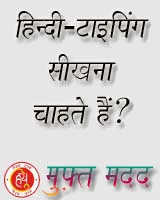CHARU SUDAN KASTURI
The Right to Information Act may prove toothless in revealing the “evidence” relating to last month’s trust-vote bribery scandal unless Somnath Chatterjee lends a helping hand.
The alleged proof — videotapes and documents — are with a parliamentary committee that is investigating the BJP charge that the UPA and its allies tried to buy off its MPs before the July 23 vote.
Chief information commissioner Wajahat Habibullah, the RTI Act’s apex referee, has told The Telegraph that the tapes and papers need not be revealed unless the Lok Sabha Speaker specially exempts the panel from standard House rules.
So, India’s landmark law for transparency in public office may fail to help shed light on an incident that many MPs across parties have described as “the most shameful” in the history of India’s legislature.
The Lok Sabha Secretariat has received over a dozen RTI applications asking for the tapes and other documents to be made public, officials said.
Magsaysay Award winner and RTI activist Arvind Kejriwal, who has also filed an application with the Lok Sabha Secretariat for the videos and documents, however, said Habibullah had “got it wrong”.
Section 8(1)(j) of the RTI Act says that information that cannot be denied to Parliament cannot be denied to the public either. However, Section 8(1)(c) of the same law says that “information, the disclosure of which would cause a breach of privilege of Parliament or the state legislature”, need not be revealed.
The members of a Parliament committee are required to take an oath of secrecy about the proceedings of the panel and the evidence placed before it, and the committee’s findings are placed before the House only with the Speaker’s approval.
Since revealing the videos or other documents without Chatterjee’s approval would amount to breach of privilege, Section 8(1)(c) allows the Lok Sabha to turn down RTI appeals, Habibullah explained.
“If, however, the committee of inquiry is not a standard Parliament committee, then the RTI Act can apply,” Habibullah said.
“So the Lok Sabha secretariat is required to disclose the evidence only if the committee is exempted from the rules that bind standard House panels…. That decision is solely the Speaker’s.”
Hours before the trust vote, three BJP members had started waving wads of notes as a rapt nation watched on television. They alleged senior Samajwadi Party and Congress leaders had given them the money as a bribe to vote for the government.
The BJP said a news channel had tried to catch the alleged bribery attempts on camera and demanded the tapes be made public. The tapes, however, were handed over to the Speaker.
शुक्रवार, 8 अगस्त 2008
सदस्यता लें
टिप्पणियाँ भेजें (Atom)







0 टिप्पणियाँ:
एक टिप्पणी भेजें